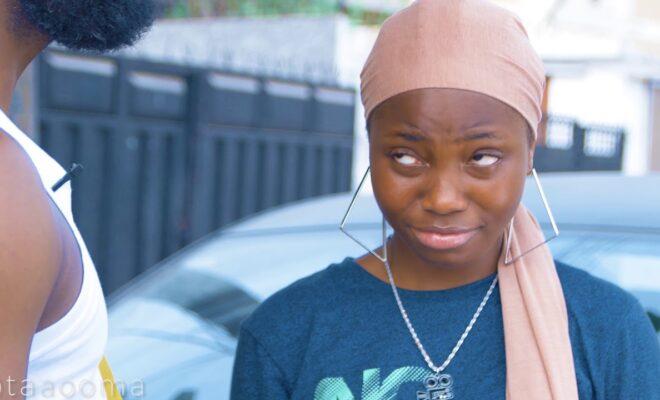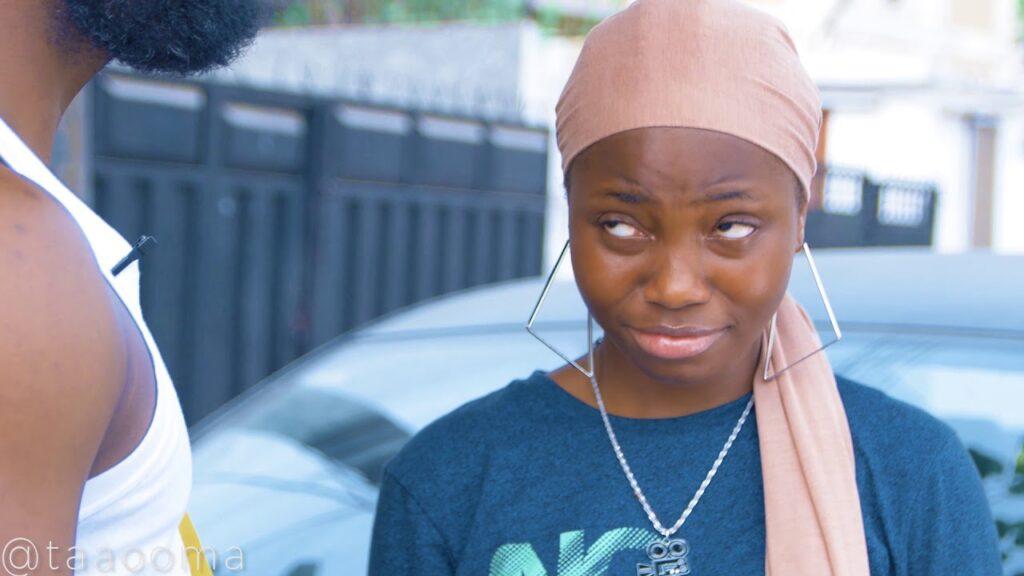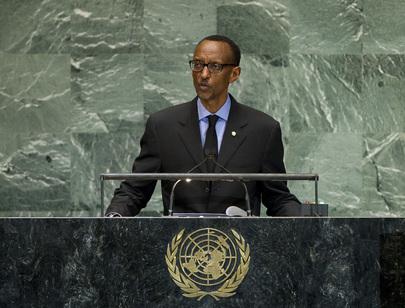Nigerians are the funniest people on the internet. These five prove it.

A growing wave of comedians in Nigeria are keeping the country and its diaspora laughing.

A screenshot from one of Taaooma’s skits.
Nigerians believe they are some of the funniest people on the internet today.
This claim enjoyed fresh legs in March this year, when the COVID-19 pandemic necessitated a lockdown across the country, leaving many Nigerians stuck at home with plenty of time on their hands.
The comedians among us, aware there was a large bored audience desperate to be engaged rose to the challenge by creating skits that were shared on social media platforms. Many went viral. The sketches were mostly short and showed the comedians embodying different characters and caricatures, using irony and satire to great effect. They were typically relatable, reflecting and making fun of contemporary Nigerian culture but often accessible enough to non-Nigerian audiences as well.
As an art form, comedy skits have a modest history in Nigeria but they have evolved in recent years and exploded during the pandemic. Here are five of the funniest:
JOSH2FUNNY
Josh Alfred’s skits will hit you hard because they’re packed with spontaneous punchlines and wordplay. Not to forget his funny props like an oversized pink coat you must have seen in his press shoots. In March, he created the viral skit Don’t Leave Me which became a global sensation. The skit has been replicated across the world from the US to South Korea. In the original video, he is asked by his friend behind the camera, Bello Khabir, to say something. Josh replies he can’t because he’s “on leave”, after which the camera pans to show him actually standing on leaves. Other skits have Josh replicating similarly silly wordplay after which Bello invariably responds appreciatively and begs for more, screaming “wait, don’t leave me!”
Lasisi Elenu
Nosa Afolabi, aka Lasisi Elenu, is plays several characters: members of a middle-class family, poets, internet fraudsters and, most recently, doctors. His well-observed parodies have drawn disapproval among professionals who are often the butt of his jokes, but they have been roundly enjoyed by many more. Of special note are his parodies of internet fraudsters, which took a turn recently as real life fraudster Hushpuppi was arrested in Dubai on charges of conspiracy to launder money, commit cybercrime and fraud to the tune of $1.7 billion. Lasisi’s skits arguably make light of such crimes but the comedian maintains he is only interpreting a character as comically as possible.
Taaooma
Taaooma, born Apaokagi Maryam, is prolific. At just 21, her output since the turn of the year has earned her 1.8 million followers across Twitter and Instagram. Her act is based on satirising a typical Nigerian household, where patriarchal and conservative ideals clash with a more youth lifestyle. The point of conflict is usually a female child, who is expected to be “decent” at all times, never bringing shame to the family by way of, say, an unwanted pregnancy . Tacoma’s skits are melodramatic and especially humorous when she employs props like head wraps and a fake beard.
Mr Macaroni
Debo Adebayo is the skit maker behind the infamous Mr Macaroni, a sophisticated businessman known for getting into trouble from chasing women. In ‘The Workaholic,’ for instance, Mr Macaroni’s womanising lands him in an embarrassing situation when he tries to get a woman’s attention by offering to do her chores. Unbeknown to him, her father is the Ooni of Ife and the work in question is the back-breaking clearing of an expanse of grassland. Mr Macaroni’s skits are so funny that his catchphrases such as “You’re doing well”, “fantabulous“ and “freaky freaky” have found their way into everyday urban Nigerian vocabulary.
Maraji
https://www.youtube.com/watch?v=UtImDo-Reeo
Gloria Oloruntobi, aka Maraji, tends to be ambitious in the scope of her parodies. She plays as many as five different characters and fits them all on the screen at the same time. Her comedy focuses on simple, sometimes awkward everyday interactions between friends, parents, children, business owners, government officials and so on.In one of her most memorable skits, watched almost a million times on YouTube, she satirises Nigerian parents’ reactions to watching sex scenes in films with their children. Maraji is arguably the foremost act in her trade at the moment and has seen her talent catapult her to nationwide fame.






Great blog, feed, news ste, whatever. I look forward every week.
Hello friends. I want to share the testimony of how I got my ex-back by dr Oguku I was bitterly denied of wedding after engagement not until I saw the testimony of one person on love page who commented on how dr Oguku helped her I decided to try my luck and it worked out just has dr promised. My life has been filled with happiness. This post is my way of saying, thank you. You can contact him on WhatsApp
(+2348123792476 email address [email protected]
WONDERFUL TAAOOMA I LUV UR VIDEOS